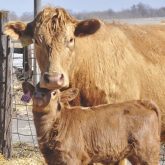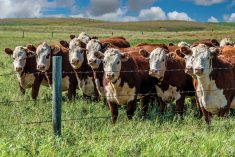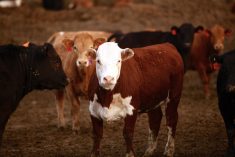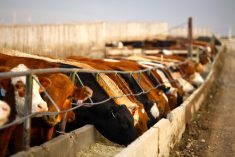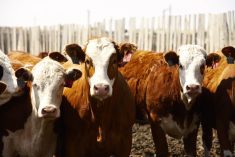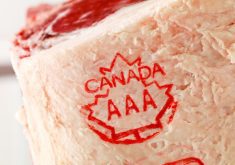McDonald’s has started verifying producers, as part of its promise to start selling sustainable beef in 2016.
Here’s what’s been happening on Alberta farms so far:
- Earlier this year, McDonald’s said it had a list of 40 “indicators” that will be used to rate a beef operation. The indicators — which cover areas such as animal care, environmental stewardship, and food safety practices — were jointly developed with livestock industry officials.
- Nineteen Alberta ranches have gone through the pilot process and have been verified. The evaluation is easy and takes about four hours to complete, said Cheri Copithorne-Barnes, chair of the Canadian Roundtable for Sustainable Beef and one of the ranchers who has been verified.
- The process is being conducted by Where Food Comes From (www.wherefoodcomesfrom.com), an independent third-party food verification company based in Colorado.
- Producers get a score ranging from one (entry) to five (excellence). A dozen of the indicators are classified as critical and participants must get a score of at least three (achievement) on each of those indicators in order to be verified as sustainable.
- None of the 19 operations has actually seen their overall score yet. That’s because Where Food Comes From is analyzing the pilot project to see which indicators worked well, and which need tweaking. As well, consulting firm Deloitte is finishing up a “life-cycle analysis” of beef production, which will also be factored in. Once that process is complete, Where Food Comes From will then rescore all the verifications it has done to date.
Read Also

Farming Smarter receives financial boost from Alberta government for potato research
Farming Smarter near Lethbridge got a boost to its research equipment, thanks to the Alberta government’s increase in funding for research associations.
Findings so far
One of the guiding principles of the process is that McDonald’s would not dictate what producers could or couldn’t do, but would work collaboratively with the beef sector.
As part of that process, three members of an advisory committee (Copithorne-Barnes, Page Stuart from Alberta Cattle Feeders, and Bob Lowe from Alberta Beef Producers) have followed up with pilot participants.
“The process of verifying is designed to be a learning experience,” said Lowe, a Nanton-area rancher. “So far everybody who has gone through the process says it has been just that. It’s been a way of showing off your production. That’s kind of the mindset that the people who have been verified have fallen into.”
The pilot has also prompted McDonald’s to change some indicators, which were designed to be “outcome based.” But that can be challenging, said Jeffrey Fitzpatrick-Stilwell, senior manager of sustainability with McDonald’s Canada. He gave the example of greenhouse gases.
“There isn’t a way that everyone accepts to measure outcomes of carbon capture or sequestration, even though we know grasslands are a major carbon sink,” he said. “We’ve toyed with some of the wording on that (and) how to make it applicable to producers. It’s hard for them to demonstrate how they’re achieving a positive outcome around greenhouse gas mitigation when you can’t point to what you mean by that or what examples of that could be.”




